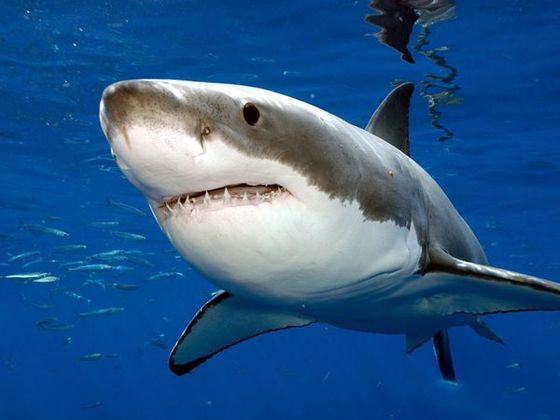By now you've heard of Smart Catch, Paul Allen's effort to save the oceans by getting us all to eat more sustainably caught fish. Another Allen initiative worth mentioning in this context: he wants to save sharks. Yes, sharks, the most feared predators of the ocean.
Movies like "Jaws" aside, sharks pose considerably less danger to humans (10 victims a year) than jellyfish (100), water buffalo (200), lions (200), hippos (300), elephants (500), crocs (2,000), scorpions (5,000), snakes (50,000), and mosquitoes (500,000). But hunting sharks (for sport, for their fins, for their skin) creates havoc with life the ocean. As a top-level predator, sharks are needed to maintain a balanced marine ecosystem; the research funded by Allen, under the umbrella of a nonprofit called FinPrint.org, is sending teams of scientists into the water to gather more data.
"We don't have the data we need to accurately assess the current population status for almost half of shark and ray species," said Dune Ives, head of philanthropy for Vulcan.
And it's not just fish being impacted by the disappearance of sharks. "Global FinPrint will help us better understand one of the ocean's great mysteries: What is happening with fragile marine ecosystems when sharks are removed?" said Dr. Demian Chapman of Stony Brook University, lead scientist on the project.
Take, for instance, coral reefs, which provide shelter for small fish, protection against shoreline erosion, and can be important tourist attractions as well. "Are coral reefs healthier or faster to recover from disturbances like coral bleaching or hurricanes because they have sharks? These are hugely important questions," Dr. Chapman said.

Leave a comment